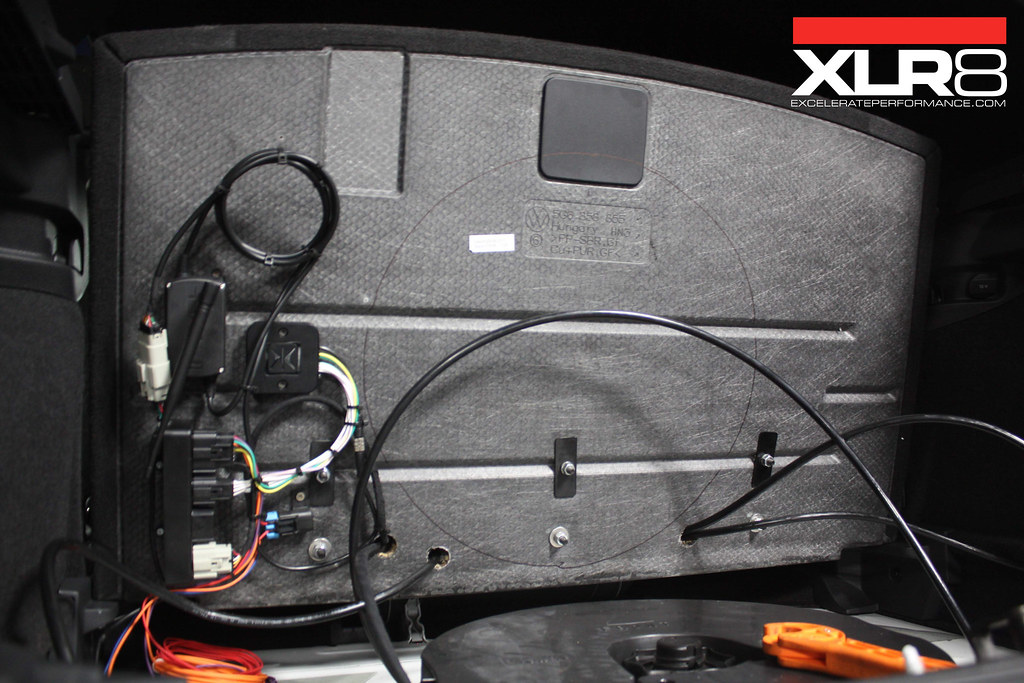
Full Answer
Why does my Volkswagen make a creaking noise when I drive?
Select Volkswagen vehicles may exhibit a creaking noise originating in the front suspension while entering steep driveways or over large bumps. The source of this noise could be the forward inner control arm bushing. To confirm if this is the issue, raise the vehicle and remove the wheel on the suspected side.
How to fix a creaking noise in a golf driver shaft?
You can use WD-40 to fix a creaking noise in your golf driver shaft. To stop the creaking noise, you need to apply the WD-40 to the shaft.
Why does my golf make a whining noise when accelerating?
Here are the most common causes of whining noises when accelerating: 1. Bad Alternator When an alternator is going bad, it’ll often begin to put out a high pitched whining sound. It should also be accompanied by the battery light. If not, it may not be the alternator making your Golf whine, although it doesn’t rule it out entirely. 2.
Why does my front suspension make a creaking noise?
Repair Procedure: Vehicles listed above may exhibit a creaking noise originating in the front suspension while entering steep driveways or over large bumps. The source of this noise could be the forward inner control arm bushing. To confirm if this is the issue, raise the vehicle and remove the wheel on the suspected side.

Why does my car make a creaking noise when I drive?
The most common reason your vehicle may make a squeaking noise when driving is due to worn brake pads. Brake pads will indicate its time for their replacement by emitting a high-pitched squeak when you brake as a gentle reminder that it's time to have your brakes checked.
What causes creaking sounds?
Thermal Expansion and Contraction. The most common reason for a house to make noises is temperature changes in the air, or what is known as thermal expansion and contraction. The temperature changes cause the wood, metal and other materials in the house structure to expand and contract, resulting in ominous creaks.
Why does my car creak low speed?
Low Speeds: 1 mph to 45 mph You hear creaking, popping, or clunking noises when turning. The likely cause of the noises that you hear are worn out or failing suspension joints. Overtime, these joints wear as they absorb all the juts, pumps, and impacts that your car endures during its' daily drives.
Why do I hear creaks at night?
Creaking and Popping in the Night The many materials that make up your house — wood framing, plywood, glass, metal ducts, nails, plumbing pipes — all expand and contract at different rates. When a house cools at night, these materials may move slightly, rubbing against each other and making noises.
Why do I hear cracking noises in my house?
One of the main causes of cracking and popping noises that seem to occur randomly in a house, mainly deep within the walls, floors, and ceilings, is known as thermal expansion.
Why are the walls in my house make cracking sounds?
Thermal Contraction and Expansion During the day, when the temperature is at its highest, the heat causes the materials in your walls to expand slightly, resulting in popping sounds. The same popping sounds happen at night when the air around walls cools and the materials contract.
Should I worry about my house creaking?
However, creaking should never just be blamed on the house being old. If you hear a sound that is not normal for your house, it is important to look into it. Another noise that you might hear is something moving in the walls. It is easy for small animals to creep inside the walls and live there.
Why is my driver head creaking?
A golf driver head can make creaking or cracking noises because the epoxy has weakened inside and caused the head to come loose from its connection point.
Why is my driver shaft making a cracking noise?
The most common reasons for cracking noises coming from a golf driver shaft are loose bits of epoxy or graphite breaking on the inside.
Why is my driver shaft making a creaking noise?
The leading cause of creaking noises coming from a golf driver shaft is loose bits of epoxy inside the shaft. This seems to occur after a golfer has applied a new coat of epoxy to the head and shaft without allowing enough time for the epoxy to dry.
How to Fix Cracking noise in Driver Head
The first thing you can do when a golf driver shaft starts to make any creaking noises is yanking on the head and grip, twisting them back and forth. If it makes the same sound, you may need to reapply the epoxy on the head or shaft.
Tools Required
A driver shaft adapter screwdriver, which will tighten up that Allen wrench so there are no loose screws inside the grip area (which I suspected). If not available, then use adjustable crescent wrenches instead; however, they take longer because these tools aren’t specifically designed like adapters typically are but work just fine.
Conclusion
A creaking golf driver doesn’t need to cause any concern. It’s usually just a broken parts of epoxy glue, or a loose driver head that causes the problem. Both of these issues can be fixed quickly and at a low price.
Why does my golf radio make a whining noise?
If your Golf’s stereo is making a whining noise, it is usually caused by a condition known as “alternator whine”. Alternator whine is a product of a drop in voltage between the radio and the alternator itself . It is usually way more noticeable on the A.M band of the radio. You’ll hear it match the acceleration of the vehicle.
What does it mean when an alternator goes bad?
When an alternator is going bad, it’ ll often begin to put out a high pitched whining sound. It should also be accompanied by the battery light. If not, it may not be the alternator making your Golf whine, although it doesn’t rule it out entirely.
What happens when a golf serpentine belt goes bad?
Your Golf’s serpentine belt turns all of the engine accessories. As they go bad, they begin to glaze and stretch. When a serpentine belt stretches, it doesn’t grip the accessories that it is turning as well. It’ll squeal until it grabs all the way. They are really affordable.
Can a radio make noise?
The radio can accept interference and cause noise when starting the vehicle. This is a great place to start, since it only takes a second. If this does stop the noise, there’s more on this directly below.
The Importance Of Bearing Preload (VIDEO)
The purpose of preload is to eliminate clearance inside the bearing and help it roll smoothly down the road. Sponsored by BCA Bearings.
VIDEO: Replacement Long Block Engines
Don’t settle for “almost” - it matters where the engine is manufactured or remanufactured. Sponsored by ACDelco.
VIDEO: GM Transmissions And Transfer Cases
GM transmissions and transfer cases are unique to each individual vehicle. This video is sponsored by ACDelco.
VIDEO: Replacement Long Block Engines
Don’t settle for “almost” - it matters where the engine is manufactured or remanufactured. Sponsored by ACDelco.
StuGoo
So my car has developed a ridiculous, intermittent creaking from the front left. Potentially the suspension but I can’t replicate it pushing the car down by hand. It seems to happen when it’s warmer and is only audible at lower speeds but it is loud and very annoying. It’s definitely not the common door frame squeak.
LouCyffer
I noticed that my suspension was creaking, particularly on full lock and most audible at slow speeds. The dealer took it in and it after a test drive, it had the suspension joints lubricated, which cured the problem. Others on here have had similar issues, and creaky suspension is a known issue it seems.
JoeGTI7
I had a creak from the front left too in my old R. It was most noticeable in dry weather and only after the car had done a few miles (ie never from cold). And only when manuevering at low speeds.
SoggyBottomBoy
I noticed that my suspension was creaking, particularly on full lock and most audible at slow speeds. The dealer took it in and it after a test drive, it had the suspension joints lubricated, which cured the problem. Others on here have had similar issues, and creaky suspension is a known issue it seems.
Jon-Paul
Every Golf and Polo we've had down the years has suffered with this, it's very much a temperature/ weather related issue. Cold dry weather when the offending bushes/ mountings are 'hard' is when it occurs, as soon as there's bit of moisture about it disappears. Our 3 yr old Polo sleeps outside and creaks like a barn door when it's cold.
JoeGTI7
Coincidentally, I just had my car serviced and told the dealer about the noise (creaking from the front suspension when going slowly over speed ramps). He said it was a known issue with the rubber seals on the suspension - that they just needed a special lubricant applied. They applied this under warranty.
StuGoo
A common problem them with little chance of it being resolved. My cars 2014 so I won’t get it under warranty. Guess I’ll just have to live with it (honestly don’t think I can). Thanks for all the replies confirming I’m not on my own with this. Sent from my iPhone using Tapatalk
1. Squealing Upon Acceleration
When you accelerate does your car make a squealing noise? It may be a loose or worn fan belt. Although an inconspicuous part of your car and fairly inexpensive, a fan belt that fails can cause quite a bit of damage to your engine as well as other parts of your vehicle.
2. Rattling Under the Car
Is your car rattling while you’re driving as though there’s a box of stones under it? More than likely, it’s a problem with the exhaust system.
3. A Hissing Sound
Only snakes or an angry cat should make hissing sounds. Never your car. If it does it may be overheating.
4. Knocking in the Engine
Strange engine noises are never good. This includes any knocking noises you may hear. It often signals that something in the engine might be on the verge of breaking if it hasn’t already.
5. Clunking Noise When You Change the Gear
Depending on the type of car you have, any clunking noise when you change the gear could mean something is wrong with the clutch or your transmission system. Along with the noise, you may have difficulty changing the gear. Both are tell-tale signs.
6. Scraping or Screeching When You Hit the Brakes
Any car squealing noise especially when you brake, usually indicates that you need to change your brake pads because they’re wearing down. The scraping and screeching is a warning sign that you shouldn’t ignore.
7. Loud Banging
Loud banging could be another signal that you have a faulty catalytic converter. It could also be the sound of your engine backfiring. This happens when air can’t mix with the fuel in your engine because of a blockage in your air filter.
